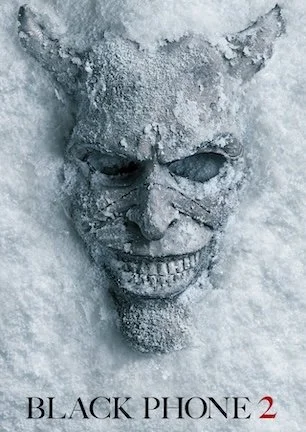Studio: Taurus Entertainment Company
Director: James Dudelson, Ana Clavell
Writer: Ana Clavell, Alex Ugelow, Pablo C. Pappano, James Dudelson, Scott Frazelle
Producer: James Dudelson, Ana Clavell
Stars: A.J. Bowen, Roy Abramsohn, Elwood Carlisle, Bunny Gibson, Elina Madison, Eileen Dietz, Stephanie Pettee
Review Score:
Summary:
Five horror stories with a touch of humor are loosely connected by an eccentric professor, a call girl ring, a homeless street vendor, and a mysterious hot dog stand.
Review:
Do not be angry with the people who soiled the name “Creepshow” by making this. They only wanted to sell their movie. Be upset with the people who willingly sold the naming rights to a production company that could not even come close to meeting the standard set by George A. Romero and Stephen King.
If blackmail was not involved, then I have to assume Taurus Entertainment purchased the title for a song, or else spent the entire budget acquiring the rights, because little money is noticed anywhere else in the production. And despite the hundreds and hundreds of worthwhile short horror stories out in the wild, somehow the five questionable tales in this anthology were the ones they chose to make into a film.
“Creepshow III” at least has the courtesy to warn you about its quality right away. Underneath the opening credits sequence is one solitary comic book image (the DVD cover) that displays with every title card. But the camera spins around on the negative space above or around the image rather than on the actual drawing itself. Amateur night continues with a mercifully brief animated sequence that may as well have been a cartoon flip book from a grade school art project. With the relatively inexpensive digital software available to any armchair animator, it is unacceptable to include a sequence this poorly done. I find it unbelievable that there was not a single aspiring artist in Los Angeles who would have created something infinitely better, probably free of charge just for the credit. If this were an art school assignment, it would earn an F for both effort and execution.
The first story is ridiculous. It concerns a young girl who finds herself with a different family every time her father presses a button on his strange new remote control. She gradually deforms into a mutated creature with each button press until finally she becomes a white rabbit. That summary will not make any more sense even if you actually watch the segment. The lowlight is that we see one scene replayed three different times with three sets of actors. Each time it is terribly overacted and staged, which only serves to highlight the unilaterally poor casting, dialogue, and direction.
The second story is the most watchable, although it plays like a poor man’s episode of “Tales from the Crypt.” A.J. Bowen lives in a world where he listens to the radio for entertainment at home, even with a TV sitting in the corner. When his radio breaks, he buys another one from a homeless street vendor. Because why go to Best Buy when there is homeless street vendor in your neighborhood, right? Soon, the radio begins speaking to Bowen and eventually leads him to commit a series of questionable acts. The “twist” ending is the closest the movie comes to emulating the style of an EC comic, so at least it demonstrates some knowledge of the formula.
Tables are turned on a john-killing call girl in the third segment when Victor, her latest client, reveals his true nature. Victor turns into a vampire that can best be described as a cross between Colin Hanks and the Zuni fetish doll from “Trilogy of Terror.” I guess you are supposed to know he is a vampire because of the fact that he devours her neck. I know he was a vampire because I read it on Wikipedia while trying to make sense of this movie.
Separated at birth?
Fun fact: The homeless woman in the “Call Girl” segment is played by Eileen Dietz, who was the face of the demon Pazuzu in William Friedkin’s “The Exorcist.”
The nutty professor from the first segment returns for the fourth story when two of his students question whether his fiancé is real or a robot. This idea might have been entertaining black comedy were it handled with a modicum of skill, but the cartoonish approach and hammy characters instead show just how far the filmmakers are out of their wheelhouse. It is not sly. It is just silly.
The fifth story involves a haunted hot dog. Do not reread that sentence. It said exactly what you think it did.
Aside from the fact that shooting was actually done on the Universal Studios backlot, nearly every aspect of the movie shows poor production values and filmmaking inexperience. Unless you want to see A.J. Bowen’s first acting foray in the horror genre, there is no reason to watch this. Smartly titling it “Creepshow” fooled a lot of us into seeing the film, but that does not mean we cannot save the rest of you from having to suffer the same way we did.
Review Score: 15







“Sleepwalker” was developed from a seven-minute short from 2024, which explains why its 89-minute runtime goes on 81 minutes too long.